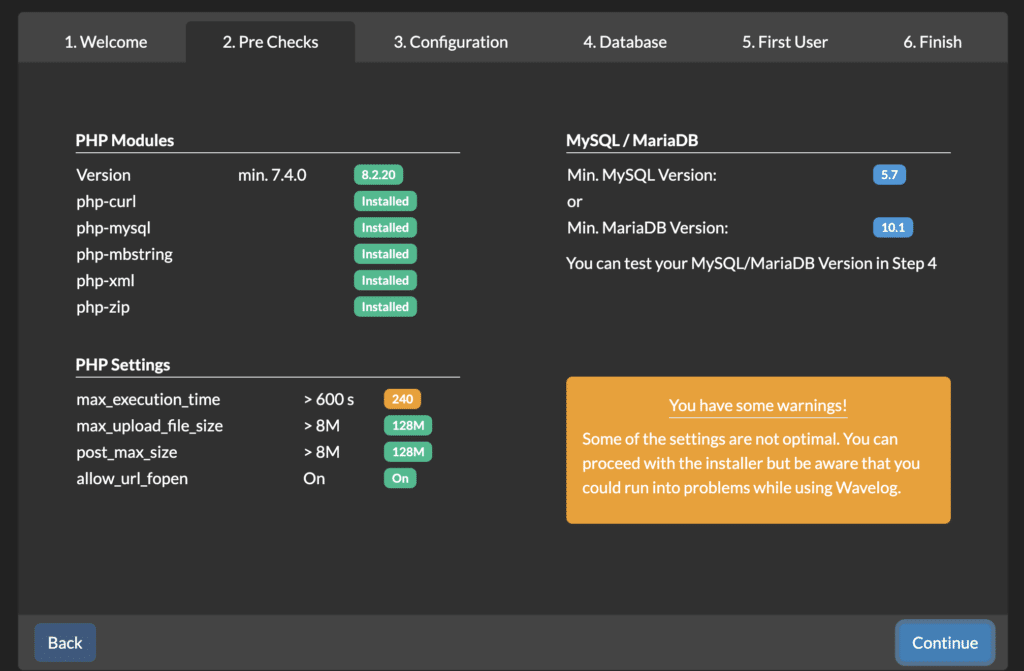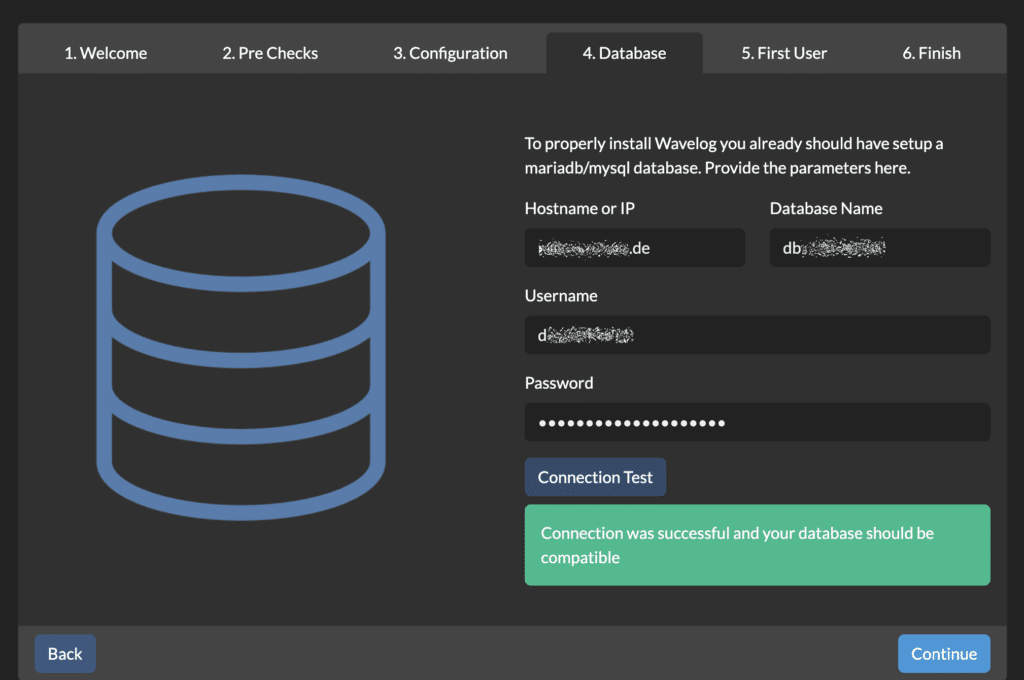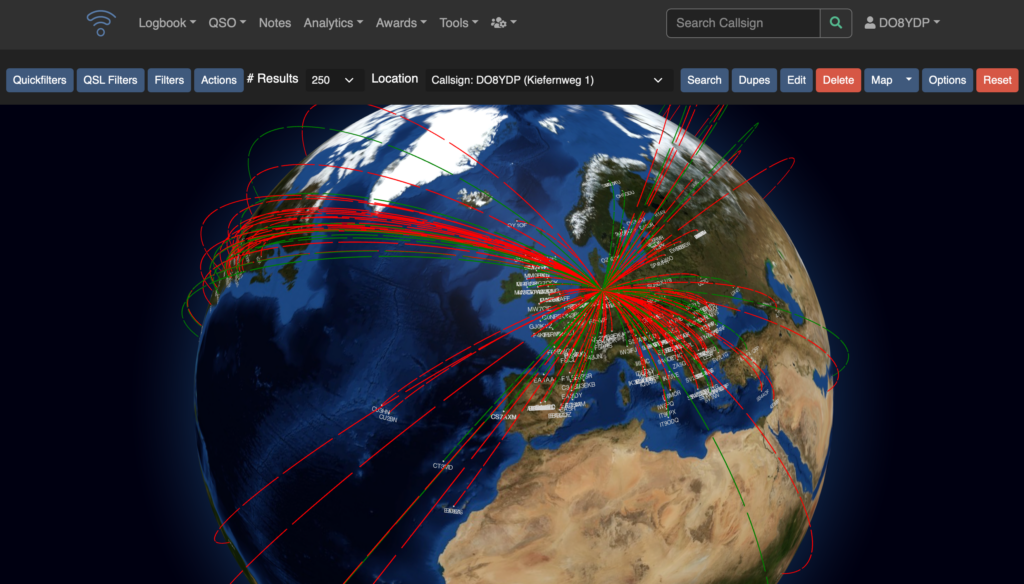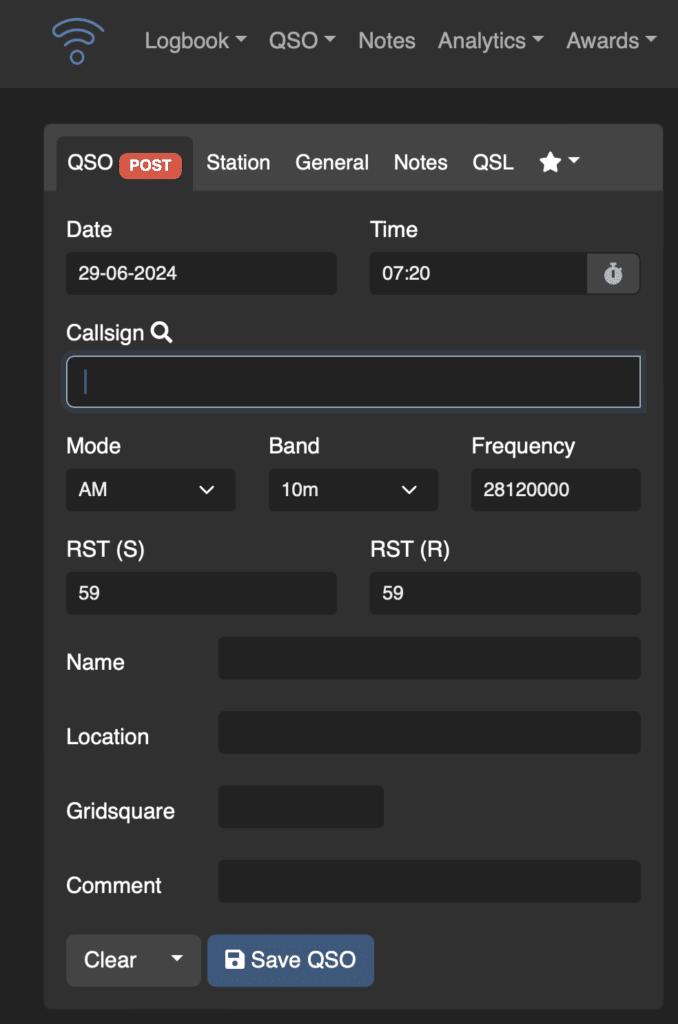I have been using Cloudlog as logbook software for amateur radio for some time now. Cloudlog, based on PHP and MariaDB, offers numerous interfaces to services such as eQSL, LOTW and QRZ.com and can be accessed in a browser from anywhere in the world. Despite its many advantages, my experience with Cloudlog was not always smooth.
Problems with Cloudlog
The initial local installation and the later release via a separate domain turned out to be problematic. This change of URL led to persistent errors when uploading LOTW certificates and downloading eQSL contacts. The developers on GitHub dismissed my bug reports as installation-specific without really offering any support. In addition, Cloudlog was running on a WAMP instance, which is unsuitable for a productive environment.
In summer 2024, I decided to move the server completely to a Linux web server. However, reinstalling Cloudlog proved to be extremely problematic. I repeatedly encountered cryptic PHP error messages or only saw a white page. While troubleshooting, I finally discovered a fork of Cloudlog called Wavelog.
Why Wavelog is the better choice
Simple installation: The developers of Wavelog have attached great importance to simplifying the installation process. The installation test for the database is integrated, and errors are described clearly and comprehensibly. In contrast to Cloudlog, there were no problems with Wavelog when subsequently changing the host URL.


Better performance: Wavelog runs significantly faster than Cloudlog. I later read in the release notes that the developers had removed unnecessary ballast, which led to this increase in performance.
User-friendly functions: Wavelog offers useful changes to the interface. For example, there is an interactive QSO map that updates in real time and displays connections on a globe. The QSO frequency can now be entered directly in the first screen of the QSO input field without having to switch to the station tab.


Error-free input: With Cloudlog, there were often problems when saving QSOs if leading or trailing spaces were copied into the input fields of the locator or callsign. Wavelog, on the other hand, handles these errors without any problems.
Data migration: I was able to import my previous data from Cloudlog into Wavelog via ADIF export without any problems. I only had to create the stations and logbooks manually beforehand.
Conclusion
The switch from Cloudlog to Wavelog has paid off for me in every possible way. The installation is easier, the performance is way better and the user-friendliness considerably improved. Wavelog offers additional functions and more stable handling of input errors. I would therefore always prefer Wavelog to Cloudlog and recommend it to anyone looking for reliable and efficient logbook software for amateur radio.
Related links:
Webseite Wavelog: https://www.wavelog.org
Wavelog Demo: https://demo.wavelog.org/
Wavelog Github Repository: https://github.com/wavelog/wavelog